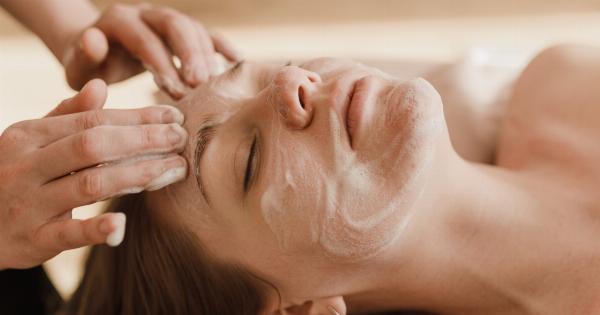Otitis, commonly known as an ear infection, refers to the inflammation of the ear, which not only results in discomfort but can also lead to various complications if left untreated. This condition can affect people of all ages, from infants to adults.
Understanding the causes and remedies for otitis is crucial for effectively managing and treating this common ailment.
Common Causes of Otitis
Otitis can arise from various factors, including:.
1. Bacterial Infection
Bacterial infections, often resulting from respiratory infections or colds, can find their way into the middle ear through the Eustachian tube. This can lead to the development of otitis media, which is particularly common in children.
2. Viral Infection
Similar to bacterial infections, viral infections can also cause otitis media. Viruses such as influenza, respiratory syncytial virus (RSV), and adenovirus can lead to inflammation and fluid buildup in the middle ear.
3. Allergies
Allergic reactions to substances like pollen, pet dander, or dust mites can cause inflammation and blockage of the Eustachian tube, resulting in otitis media.
4. Sinus Infections
Sinus infections can cause the Eustachian tube to become swollen or blocked, impairing proper drainage and ventilation of the middle ear. This increases the risk of developing otitis media.
5. Smoking
Exposure to secondhand smoke, especially in infants and children, can damage the Eustachian tubes and weaken the immune system, making them more susceptible to ear infections.
6. Foreign Objects in the Ear
Inserting objects like cotton swabs, hairpins, or toys into the ear can result in trauma and damage to the ear canal, potentially leading to inflammation and infection.
7. Swimming
Water that remains in the ear after swimming can create a moist environment conducive to bacterial or fungal growth, increasing the risk of otitis externa, also known as swimmer’s ear.
8. Changes in Air Pressure
Pressure changes during air travel, scuba diving, or even mountainous hikes can cause a temporary dysfunction of the Eustachian tube, leading to fluid buildup and otitis media.
9. Weakened Immune System
A compromised immune system due to conditions like HIV/AIDS, diabetes, or autoimmune diseases makes individuals more susceptible to infections, including otitis.
10. Structural Abnormalities
Certain anatomical abnormalities, such as cleft palate or Down syndrome, can affect the Eustachian tube’s function, increasing the risk of ear infections.
Remedies for Otitis
There are several strategies and remedies to cope with otitis, depending on the type and severity of the infection:.
1. Antibiotics
If the ear infection is caused by a bacterial infection, antibiotics may be prescribed to eliminate the bacteria. It is essential to complete the full course of antibiotics as directed by the doctor, even if symptoms improve.
2. Pain Relief Medications
Over-the-counter pain relief medications, such as acetaminophen or ibuprofen, can help alleviate the discomfort associated with ear infections. Consult a healthcare professional for appropriate dosage.
3. Warm Compresses
Applying a warm compress to the affected ear can help relieve pain and reduce inflammation. Ensure the compress is not too hot and avoid using it for extended periods.
4. Ear Drops
For infections limited to the ear canal, ear drops containing antibiotics or anti-inflammatory medication may be prescribed. Follow the instructions and dosage recommended by a healthcare professional.
5. Nasal Decongestants
If an ear infection is associated with allergies or sinus congestion, nasal decongestants may help relieve congestion, allowing for proper ventilation of the Eustachian tube.
6. Avoiding Irritants
Avoid exposure to irritants such as cigarette smoke, strong chemicals, or other environmental allergens that can exacerbate ear infections or contribute to their development.
7. Allergy Management
If allergies are causing recurring ear infections, managing and treating allergies through medications, nasal sprays, or allergen avoidance can help prevent otitis.
8. Good Hygiene Practices
Keep ears clean and dry to minimize the risk of infections. Ensure the ears are properly dried after swimming or taking a shower and avoid inserting objects into the ear canal.
9. Vaccinations
Following the recommended vaccination schedule, especially for infants and young children, can help prevent infections such as influenza and pneumococcal diseases, which often lead to otitis media.
10. Surgical Intervention
In some cases, when otitis becomes recurrent or chronic, surgical intervention may be necessary.
Procedures like myringotomy (placing ventilation tubes in the ears) or adenoidectomy (removal of adenoids) can help improve ventilation and prevent fluid buildup.






























